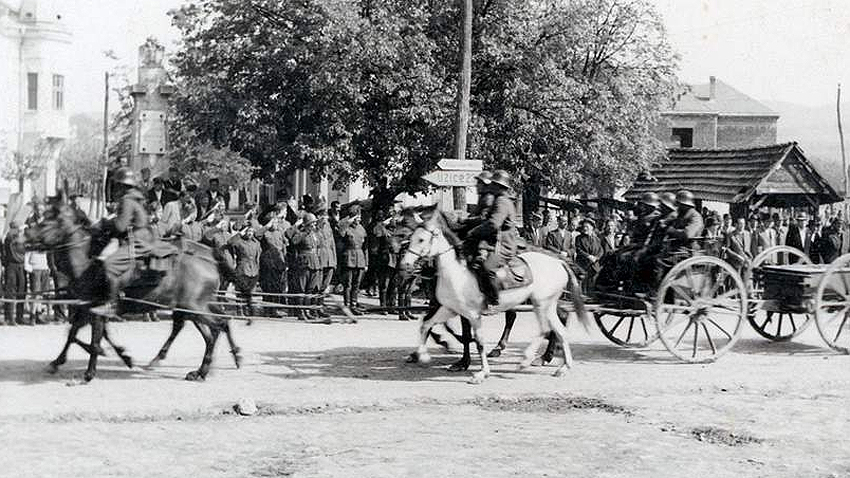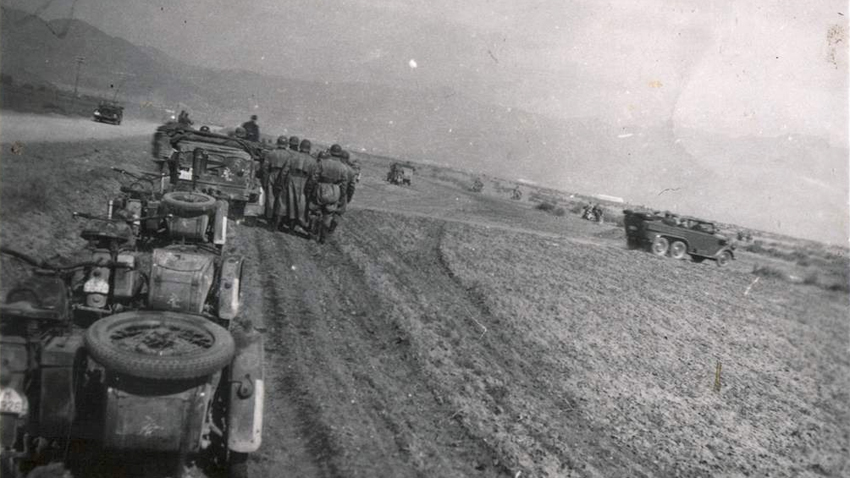The 70th anniversary of the end of World War II has prompted the Archives State Agency to present its new digital collection related to the most devastating world conflict so far. The collection is part of the “Bulgarian Wars" project dedicated to the three major historical events that we mark in 2015: the 70th anniversary of the end of World War II, 100 years after Bulgaria joined World War I, and 130 years after the Serbo-Bulgarian War.

What is the number of Bulgarian military casualties in World War II? According to the chairman of the Archives State Agency, Assoc. Prof. Mihail Gruev one of the biggest problems in Bulgarian history is linked to finding out the exact number of those who were killed.
"The most important result of our work is establishment of their number. So far we have we have reached the figure of 12 587 killed in the Second World War. We are talking about the whole period of Bulgarian participation in the war – from joining the Axis on March 1, 1941 until the capitulation of Germany. During the Paris Conference figures of 32,000, 40,000 dead were reported. There are large differences mostly related to an unspecified number of those who went missing in the war. The number of the wounded was also sometimes added up to the number of the dead."
On September 9, 1944 a coup d'etat took place in Bulgaria. The new government signed an armistice with the Soviet Union and the Bulgarian army joined the war against Germany. "In the period before September 9, 1944 we can talk only about Bulgarians killed in guerrilla actions and during enemy bombings. Only after that Bulgarians soldiers died in military actions against Germany,” Mihail Gruev says.

The agency has a list of German soldiers who received treatment in Bulgarian hospitals or were killed when overcoming the Greek defense line of Metaxas in 1941. There is also a list of deceased Soviet soldiers in the country. It includes primarily soldiers injured and transported to Bulgaria after the Jassy–Kishinev Operation of the 3rd Ukrainian Front. "Our web site allows Bulgarian citizens to seek information about their grandfathers or great-grandfathers. But it also allows Germans or Russians, to find out where their relatives were buried.”
English: Alexander MarkovPhotos: archives.bg
They call Nikopol “the town of ages” because its history goes back thousands of years. It was founded as a settlement in the year 169 during the reign of Roman Emperor Marcus Aurelius. In 629, theByzantine Emperor renamed the town to Nicopolis, meaning..
There are rumours and speculations that some forgeries, so good that they are not inferior to the originals, could be found among the exhibits in the museums, but at the moment a whole series of forgeries can be seen at an exhibition..
A unique statue from the Roman period of Odessos, preliminarily dated to the late 2nd to the first half of the 3rd century, has been discovered during excavation works near the train station in Varna, said archaeologists from the Varna Regional..

+359 2 9336 661
